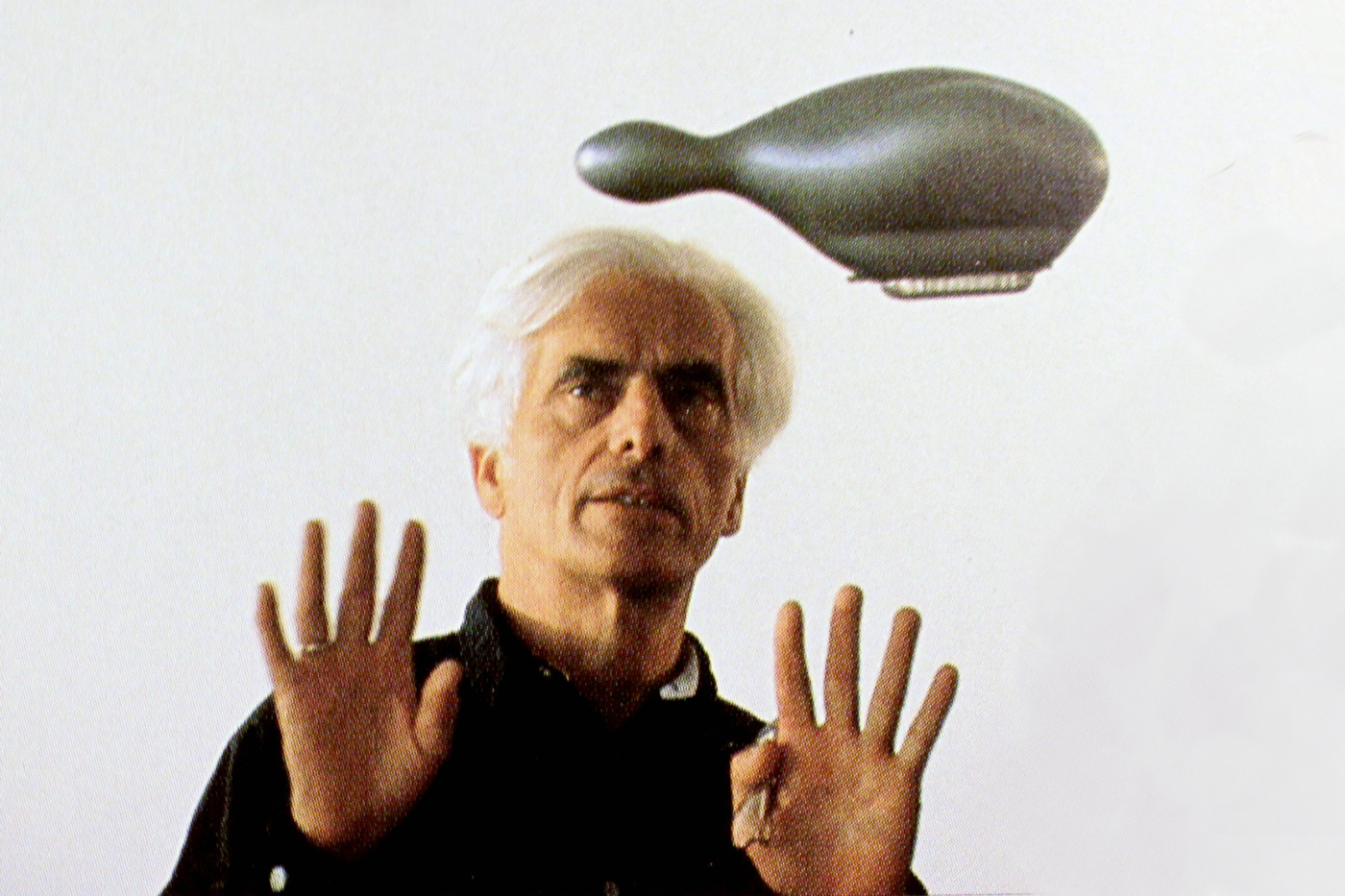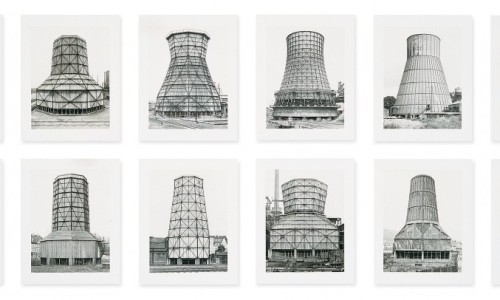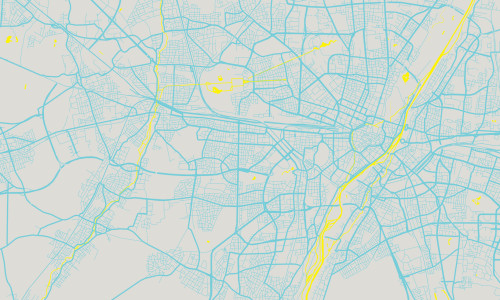Frei Otto was named this year’s Pritzker winner shortly after he passed away on March 09, 2015. For the first time, the Pritzker Award Laureate was named posthumously. A long-due nomination to acknowledge the scientific and artistic work of one of the pioneers of light construction. Traditionally, every Pritzker Laureate holds an acceptance speech – a personal statement on how they relate to Architecture and what they stand for.
Frei Otto is the sole Pritzker Laureate to never present an acceptance speech, though his body of work is more of an eloquent statement.
Philip Johnson: 1979 Pritzker Laureate
” In this century alone, we have Frank Lloyd Wright, Le Corbusier, Lutyens, Mies van der Rohe, and our young architects may be better than them. ”
Luis Barragán: 1980 Pritzker Laureate
“Nostalgia is the poetic awareness of our personal past, and since the artist’s own past is the mainspring of his creative potential, the architect must listen and heed his nostalgic revelations.”
James Stirling: 1981 Pritzker Laureate
“The `high architectural aspirations’ achieved in some of our earlier projects were in a sense accidents—the clients were not necessarily expecting a work of art in addition to a well functioning building—but they got buildings which have ever since been overrun with hordes of architectural students pounding through, something the users didn’t anticipate or now appreciate.”
Kevin Roche: 1982 Pritzker Laureate
“That Architecture is an art we have the evidence of history; that it is an art in our time we cannot yet judge.”
Ieoh Ming Pei: 1983 Pritzker Laureate
“The chase for the new, from the singular perspective of style, has too often resulted in only the arbitrariness of whim, the disorder of caprice.”
Richard Meier: 1984 Pritzker Laureate
“My goal is presence, not illusion.”
Hans Hollein: 1985 Pritzker Laureate
“As an architect, I am responsible to the needs of man and society.”
Gottfried Böhm: 1986 Pritzker Laureate
“I don’t overestimate the influence of architecture on people, but I am sure that the physical alienation of our cities contributes to our inability to live together harmoniously.”
Kenzo Tange: 1987 Pritzker Laureate
“The development of so-called “intelligent buildings” is a natural consequence and today’s society will demand that whole districts and cities themselves become “intelligent” in the same way as the individual buildings.”
Oscar Niemeyer: 1988 Pritzker Laureate
“First were the thick stone walls, the arches, then the domes and vaults—of the architect, searching out for wider spaces.”
Frank Gehry: 1989 Pritzker Laureate
“Architecture is a small piece of this human equation, but for those of us who practice it, we believe in its potential to make a difference, to enlighten and to enrich the human experience, to penetrate the barriers of misunderstanding and provide a beautiful context for life’s drama.”
Aldo Rossi: 1990 Pritzker Laureate
“I have always felt that my architecture is timeless.”
Robert Venturi: 1991 Pritzker Laureate
“And as a building is designed from the inside out and the outside in, so, one can say, is an architect designed in that way—that is, his own development as an artist can work through his development inside—through his intuition, ordered by means of analysis and discipline, but also through his development outside, via the influence of persons and places.”
Alvaro Siza: 1992 Pritzker Laureate
“The various circumstances that surround architectural commissions, with their stigmas of specialization led me until recently to project above all—in a fragmentary way—the urban tissue made of apparently banal elements that shape the majority of the area of any city or territory.”
Fumihiko Maki: 1993 Pritzker Laureate
“Having witnessed personally this transformation from a garden city to an industrialized city within the span of a mere fifty years, Tokyo presents for me a rich mental landscape at an almost surrealistic level.”
Christian de Portzamparc: 1994 Pritzker Laureate
“And because architecture is a public art, architects, unlike other artists, do not enjoy complete personal creative freedom.”
Tadao Ando: 1995 Pritzker Laureate
“My hope has been and continues to be, not only to solve realistic problems, but also to pursue the ideal by overlaying speculative imaginings.”
Rafael Moneo: 1996 Pritzker Laureate
“So many architects now seek to manifest motion instead of stability, the ephemeral instead of the perpetual, the fragmented instead of the whole and the fictitious instead of the real.”
Sverre Fehn: 1997 Pritzker Laureate
“My most important journey was perhaps into the past, in the confrontation with the Middle Age, when I built a museum among the ruins of the Bishops’ Fortress at Hamar.”
Renzo Piano: 1998 Pritzker Laureate
“Architects have to live on the frontier, and every so often they have to cross it, to see what is on the other side.”
Norman Foster: 1999 Pritzker Laureate
“But looking back with the perspective of nearly fourty years, I can see that our practice has been inspired by these polarities of action and research, which means trying to ask the right questions with an insatiable curiosity about how things work, whether they’re organizations or mechanical systems.”
Rem Koolhaas: 2000 Pritzker Laureate
“Fifty years ago, the architectural scene was not about a unique individual, the genius, but about the group, the movement.”
Jacques Herzog and Pierre de Meuron: 2001 Pritzker Laureate
“Paradoxically, the box, conceivably the simplest and most basic architectural shape had acquired the value of its own like a stylistic device And that was exactly what we always tried so assiduously to avoid.”
Glenn Murcutt: 2002 Pritzker Laureate
“I have always believed in the act of discovery rather than creativity.”
Jørn Utzon: 2003 Pritzker Laureate
“From practicing in a small Nordic country with little possibility of working outside Denmark, even
though inspired by a multitude of other persons and cultures, he experienced that the world suddenly
opened to him in a way, unheard of at the time.” (Jan Utzon speaking on behalf of his father, 2003 Pritzker Laureate)
Zaha Hadid: 2004 Pritzker Laureate
“Studying the revolutionary Russian work I realized how Modern architecture built upon the break-through achieved by abstract art as the conquest of a previously unimaginable realm of creative freedom.”
Thom Mayne: 2005 Pritzker Laureate
“I am captivated by what emerges and develops from the smallest piece of information as it absorbs the huge number of realities that come to impact it.”
Paulo Mendes da Rocha: 2006 Pritzker Laureate
“We must have an awareness of our human dimension, the dimension of human beings who are part of nature and architecture, and who are linked to the establishment of space vis a vis nature.”
Richard Rogers: 2007 Pritzker Laureate
“I have always believed that a humane and progressive architecture is one that creates beauty out of
function.”
Jean Nouvel: 2008 Pritzker Laureate
“To me, one of the missions of specific architecture is to complete, to re-orient, to diversify, to modify
and to imagine what the generic architectures can never imagine: the lifetimes to which they will give
shelter. “
Peter Zumthor: 2009 Pritzker Laureate
“And then comes the really hard task when I have to take care that nobody destroys my first image.”
Kazuyo Sejima & Ryue Nishizawa: 2010 Pritzker Laureate
“Looking back, one of the major projects that defined our direction was the design for the 21st Century Museum of Contemporary Art in Kanazawa.”
Eduardo Souto de Moura: 2011 Pritzker Laureate
“What we needed was a clear, simple and pragmatic language to rebuild the country and a culture – nothing better than the “forbidden” Modern Movement to step up to that challenge.”
Wang Shu: 2012 Pritzker Laureate
“In all of my architectural design activities I have constantly asked myself the following questions: How can an architecture founded on craftsmanship survive in today’s world?”
Toyo Ito: 2013 Pritzker Laureate
“My work has always been about tearing down this wall that separates modern architecture from nature and the local community, in order to create architecture that is open to both.”
Shigeru Ban: 2014 Pritzker Laureate
“I believe that even the temporary structures have to be beautiful and comfortable.”
Frei Otto: 2015 Pritzker Laureate

” Throughout his life, Frei Otto has produced imaginative, fresh, unprecedented spaces and constructions. He has also created knowledge. Herein resides his deep influence: not in forms to be copied, but through the paths that have been opened by his research and discoveries. His contributions to the field of architecture are not only skilled and talented, but also generous.For his visionary ideas, inquiring mind, belief in freely sharing knowledge and inventions, his collaborative spirit and concern for the careful use of resources, the 2015 Pritzker Architecture Prize is awarded to Frei Otto.” Jury Citation



